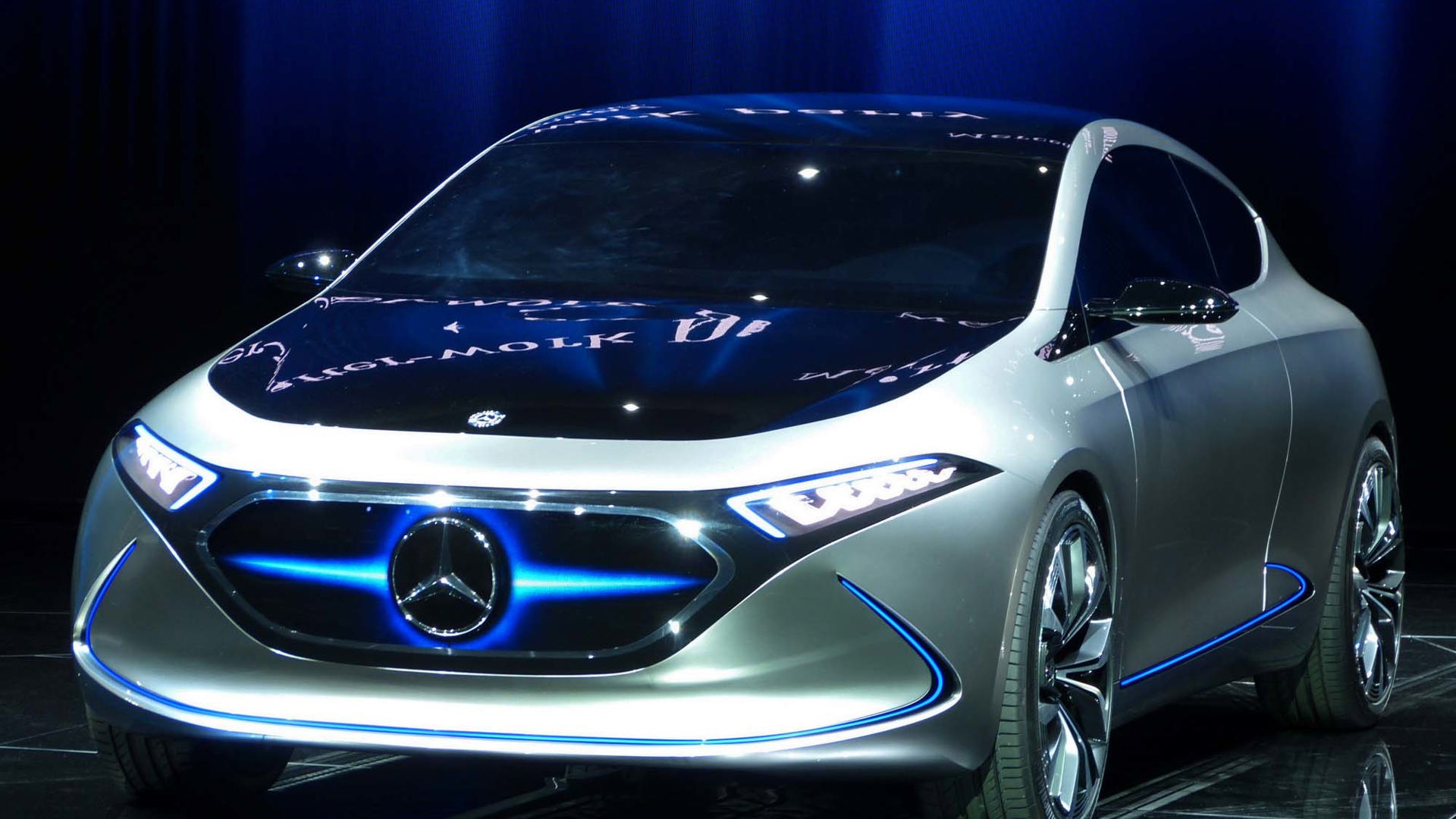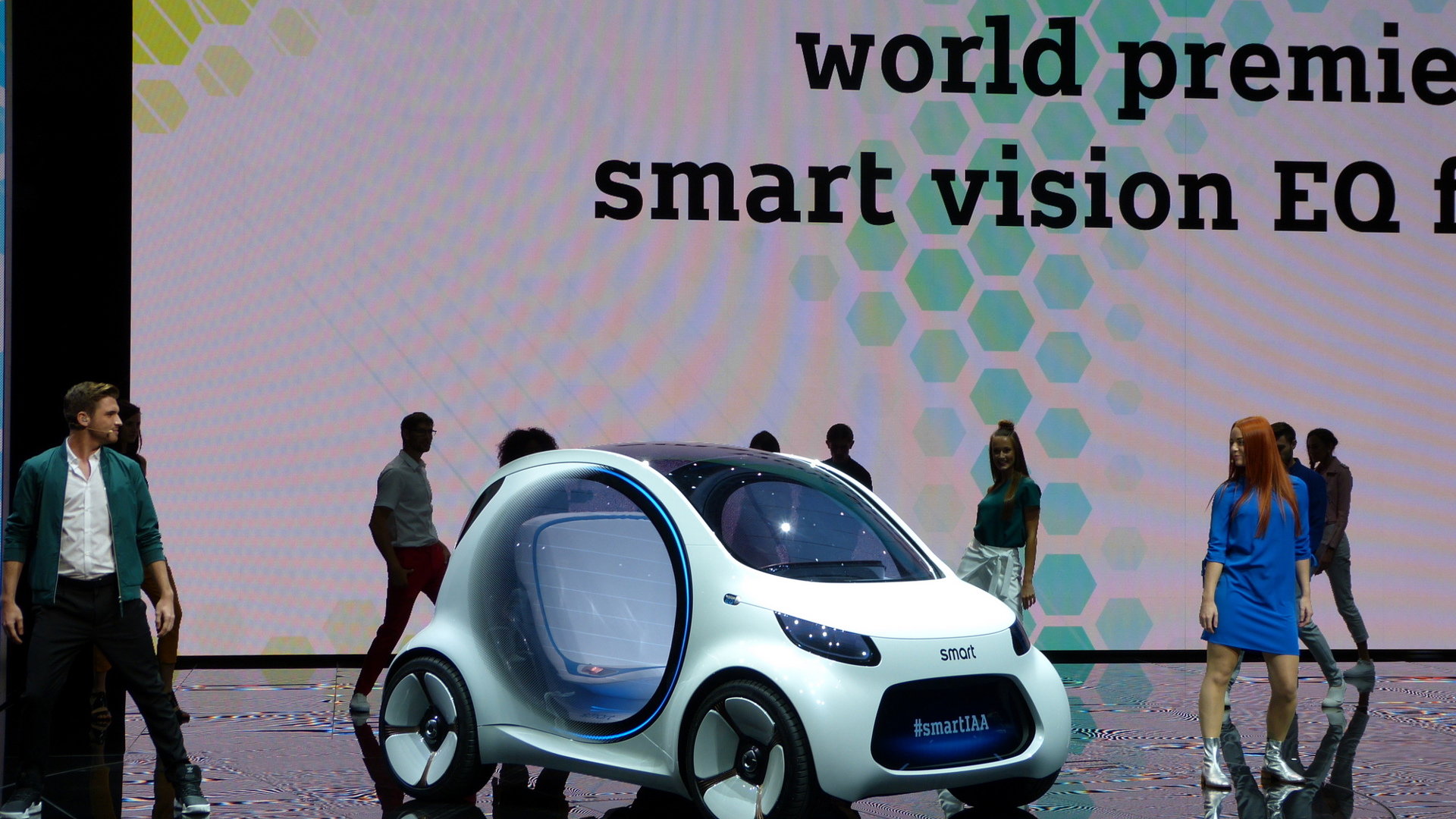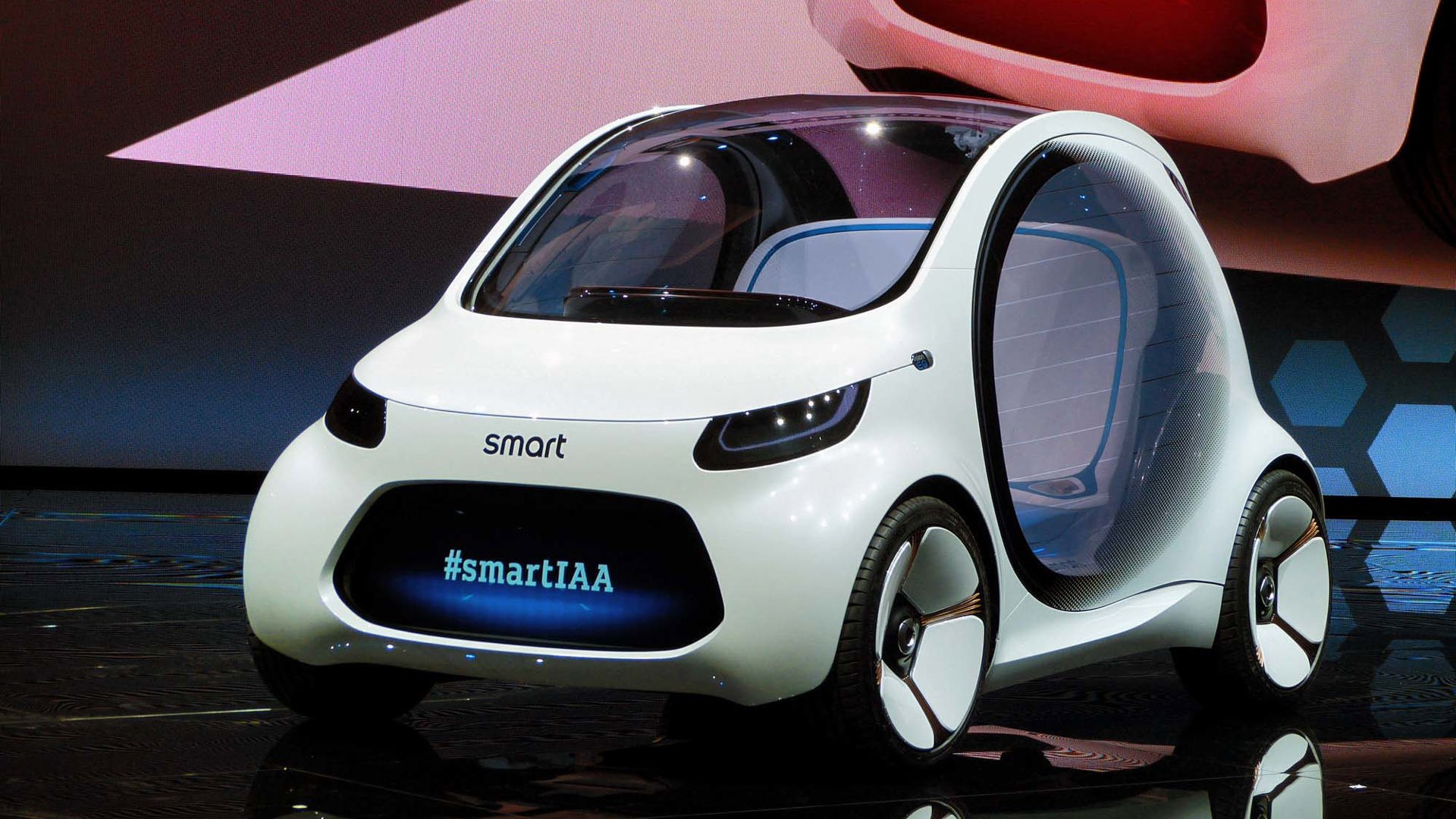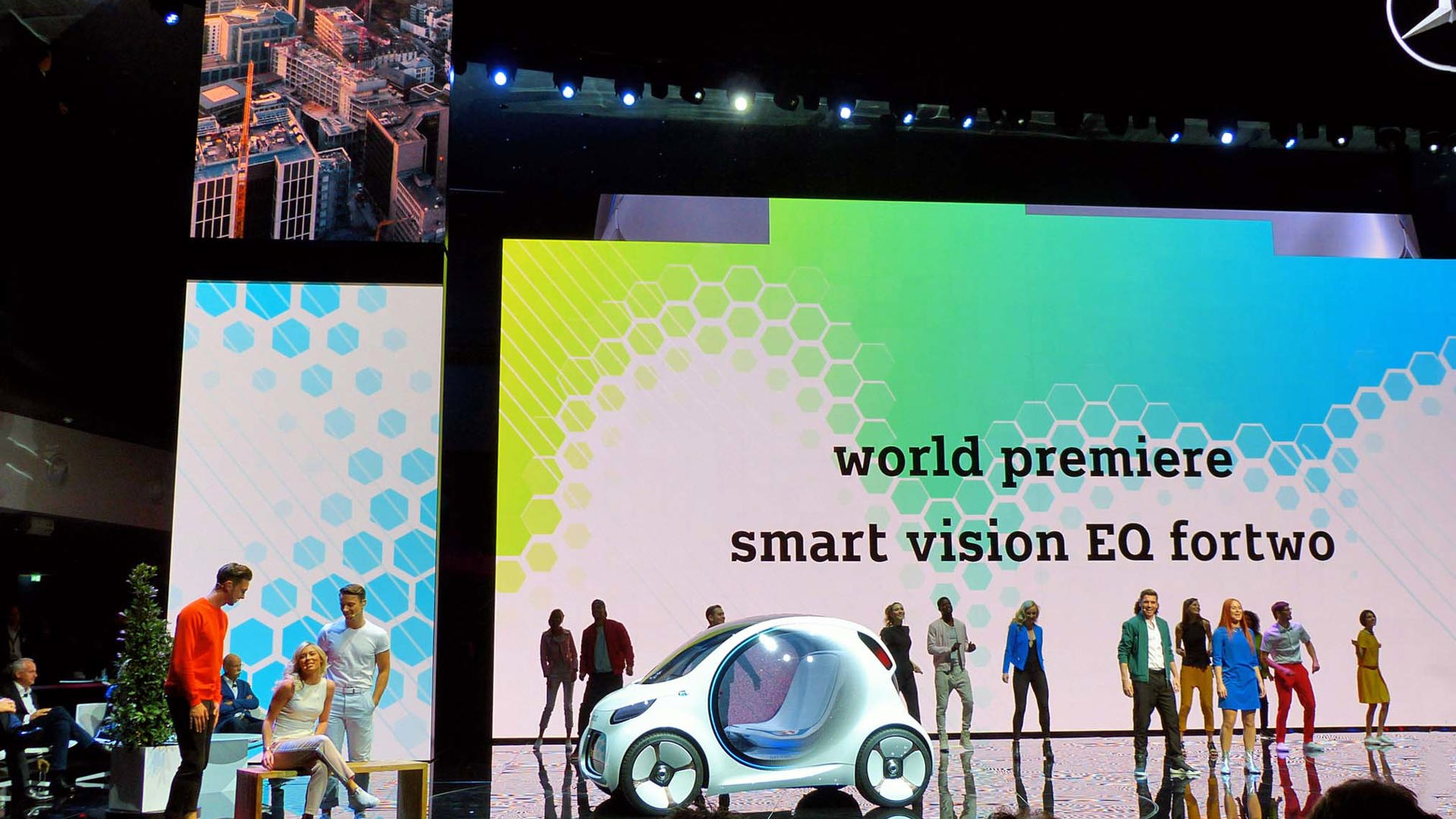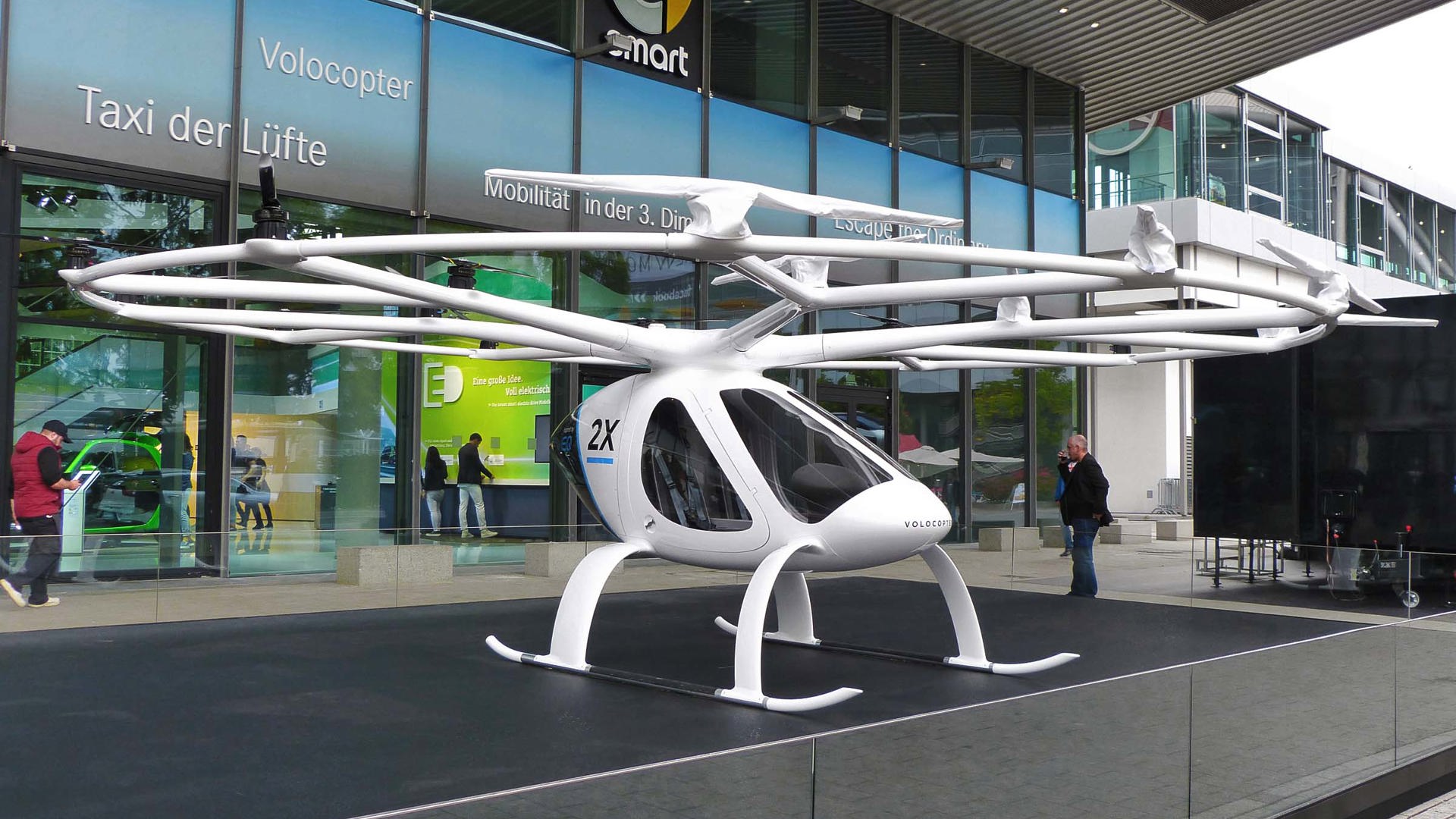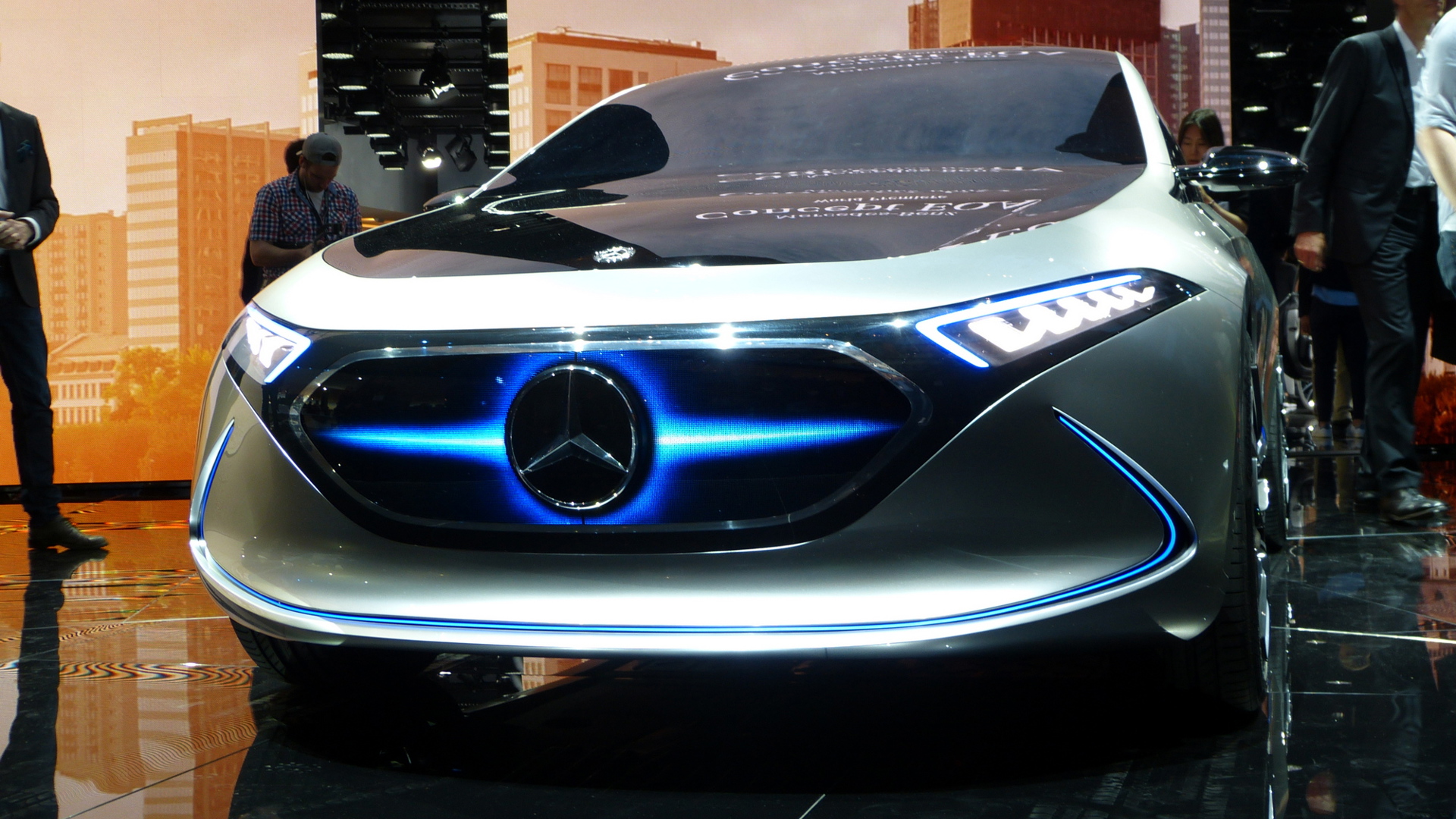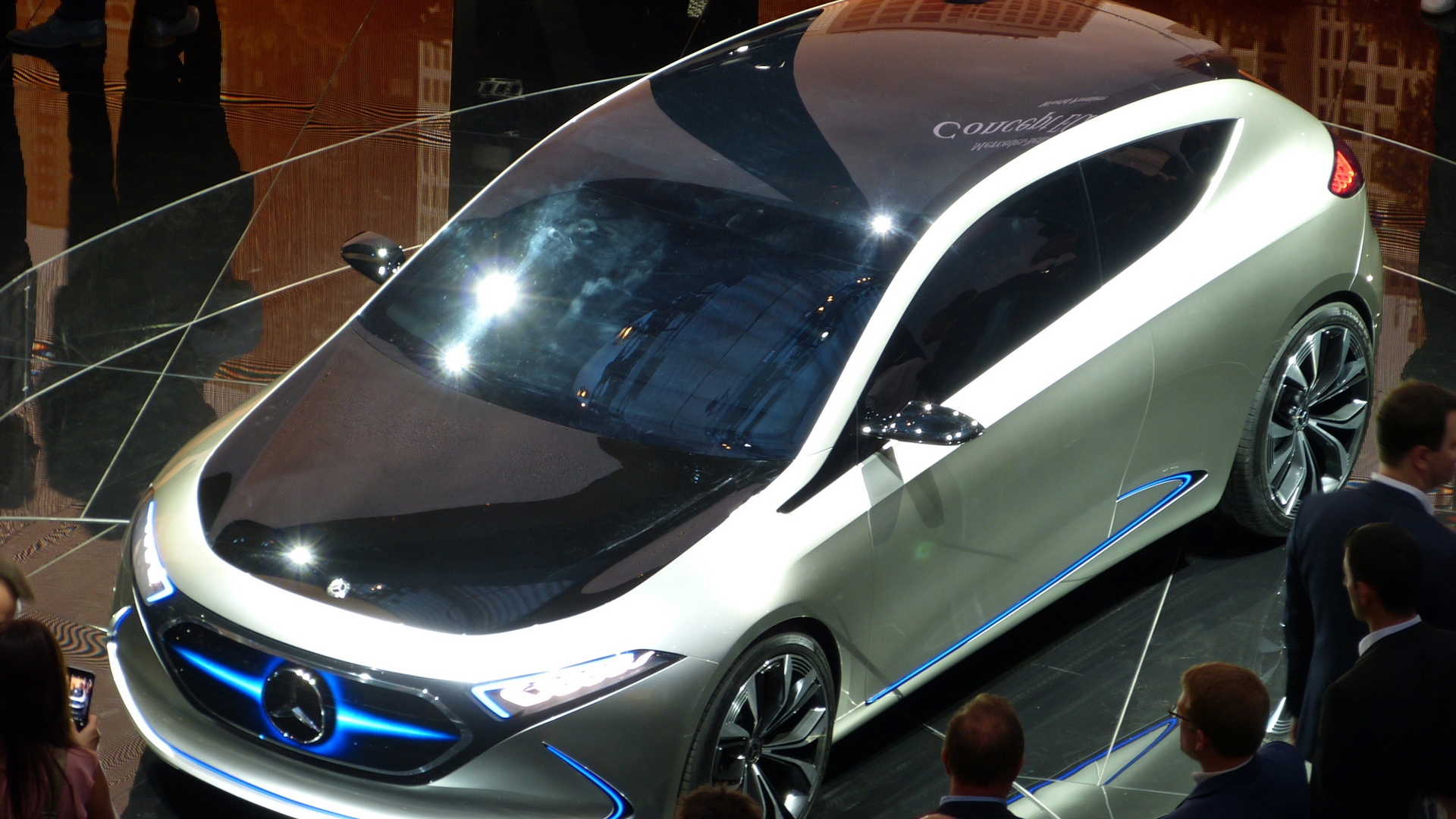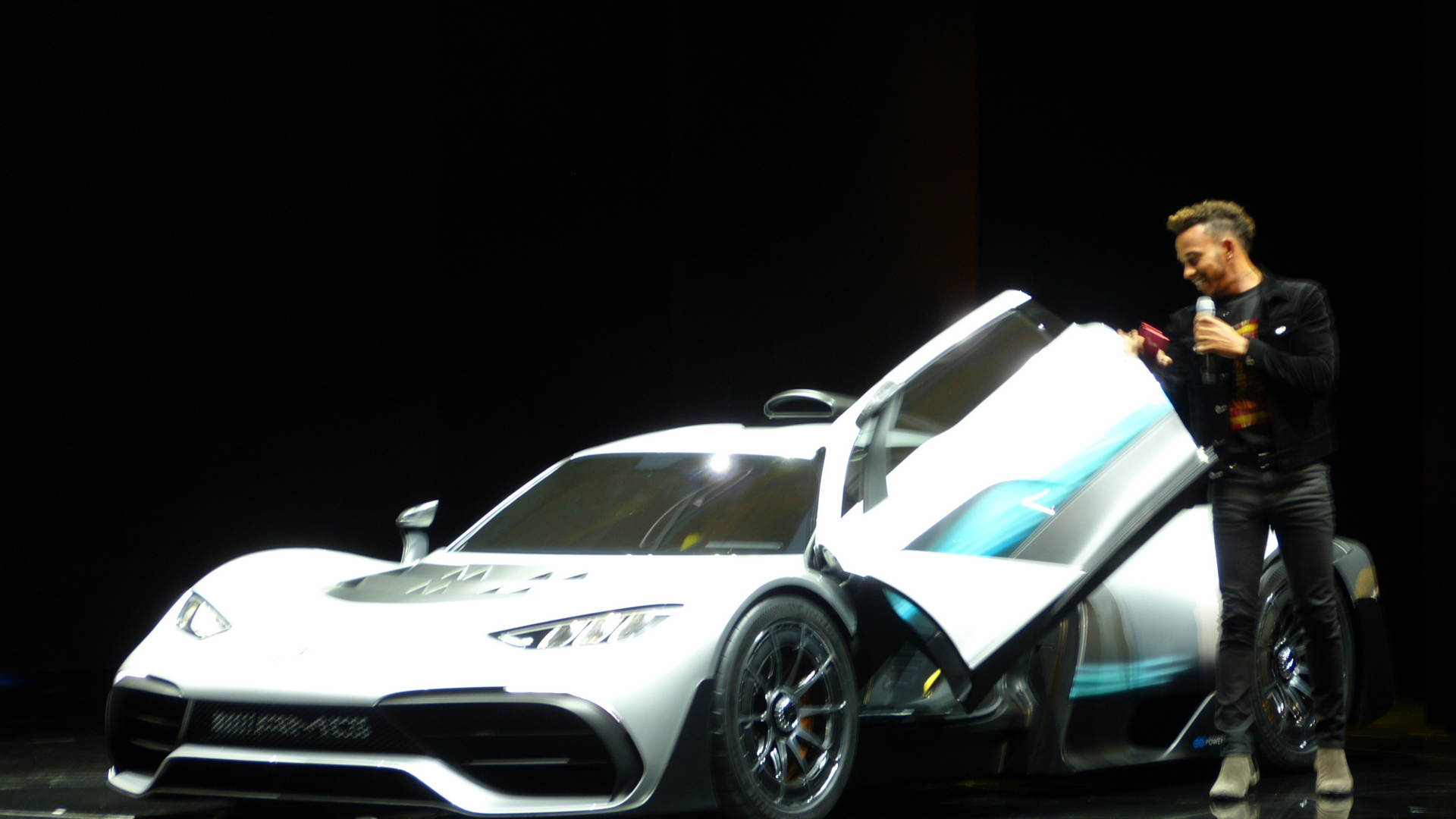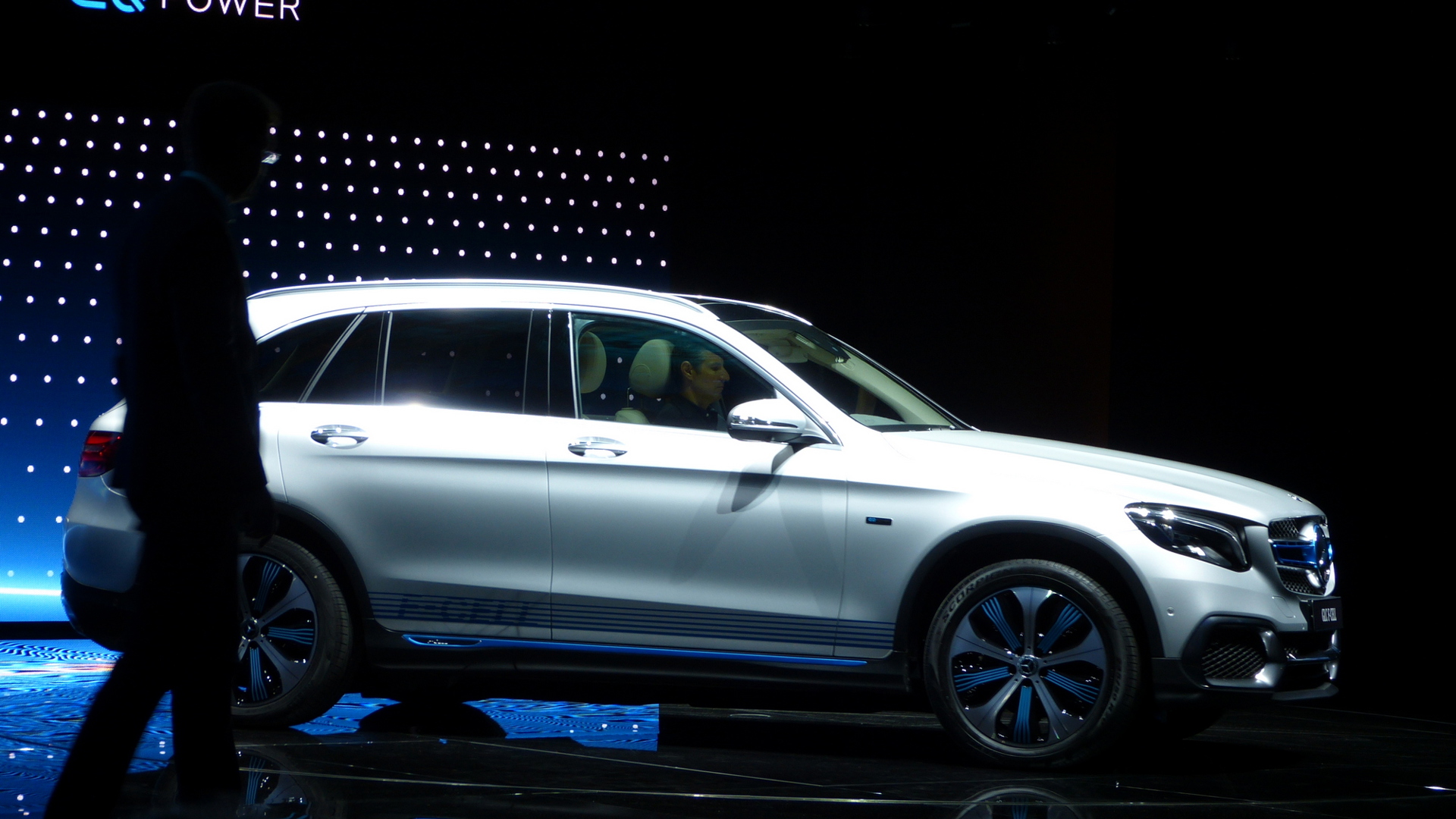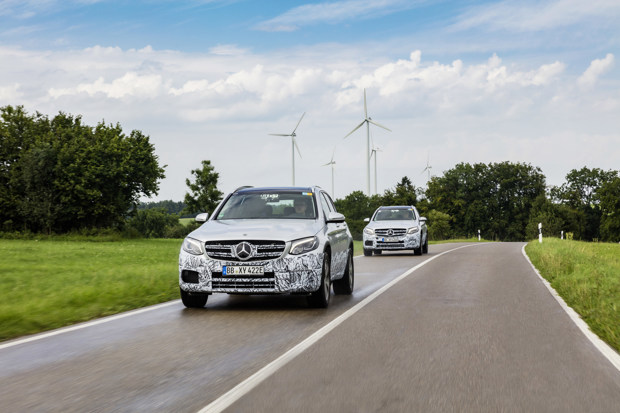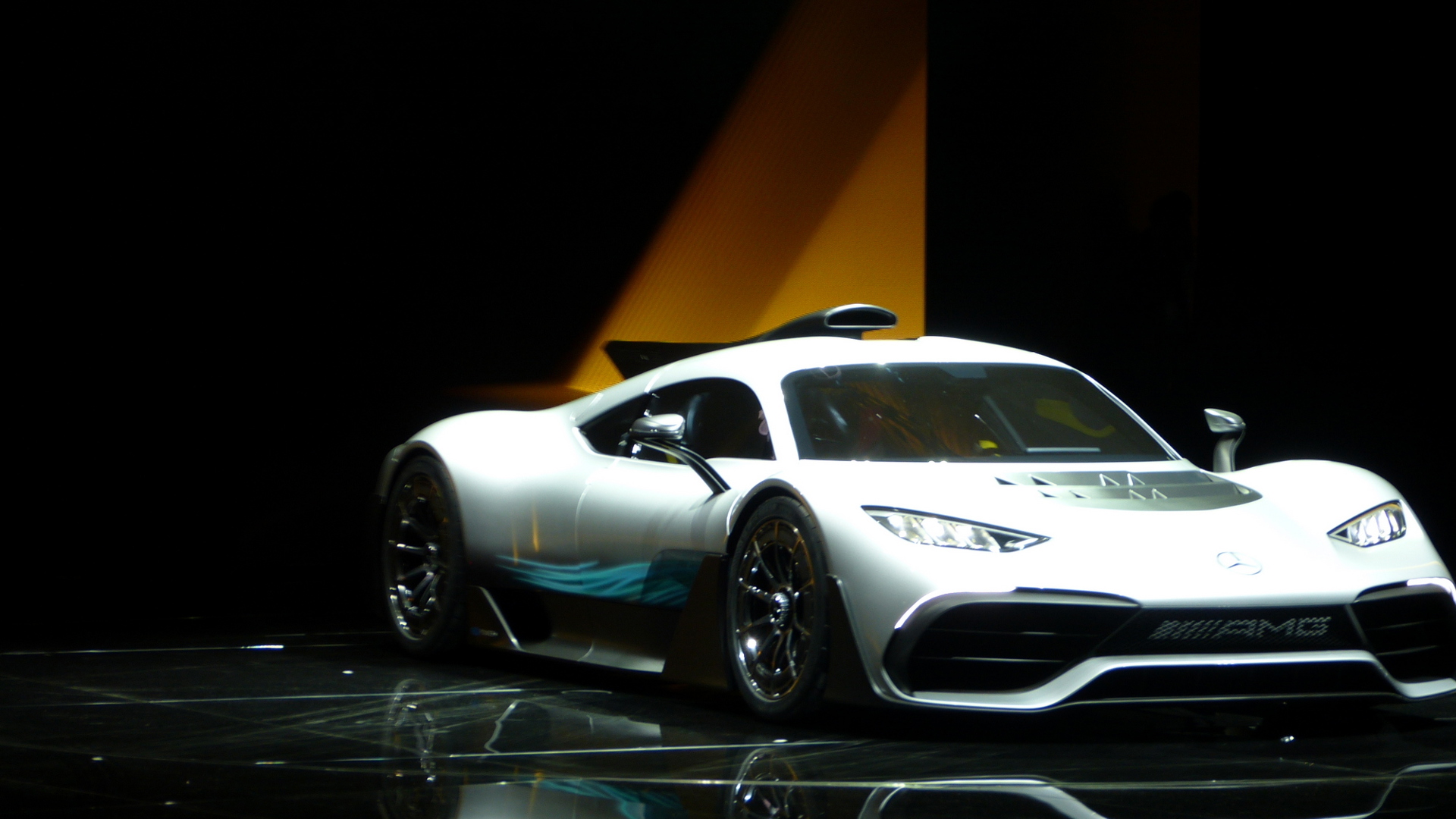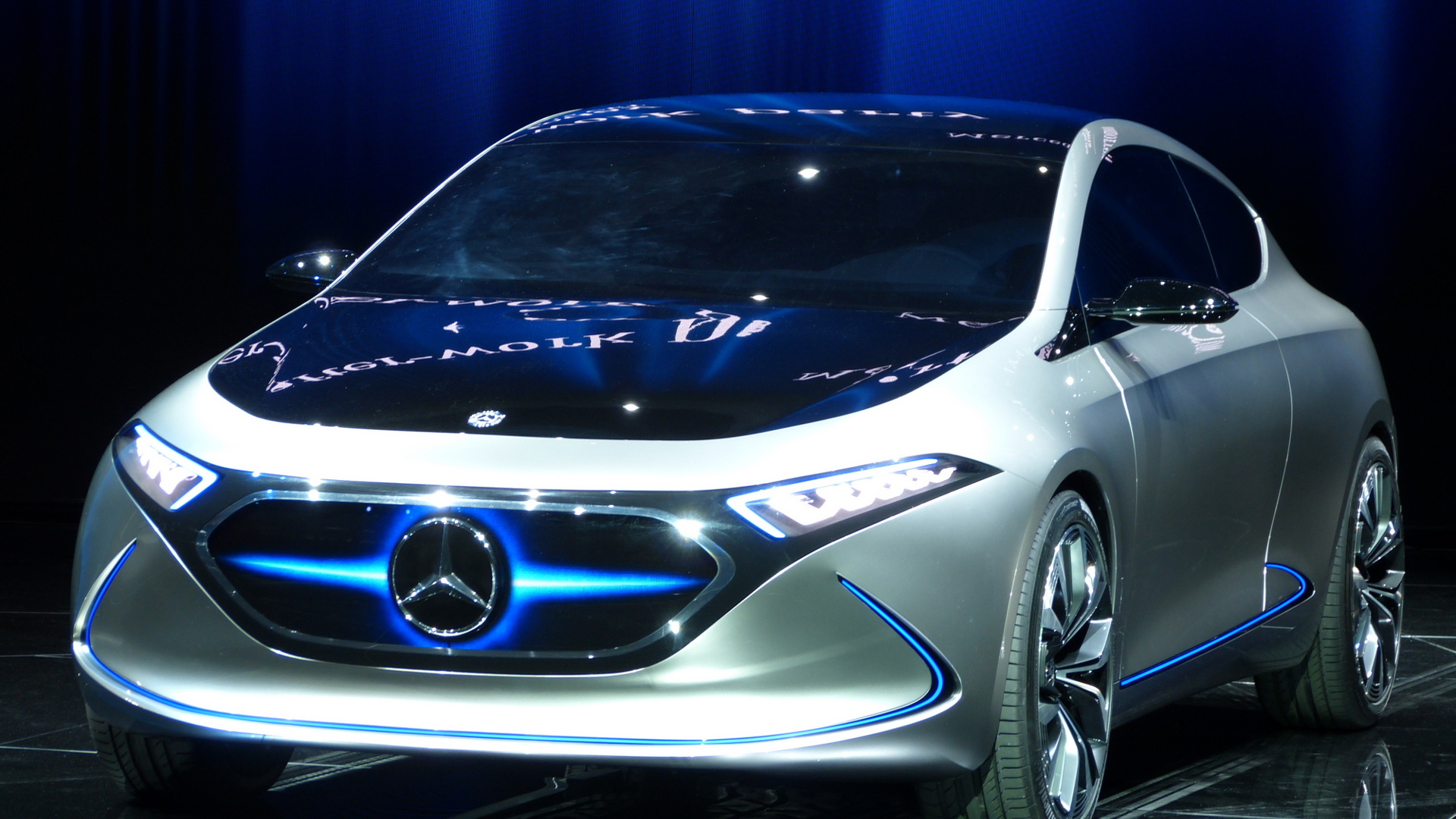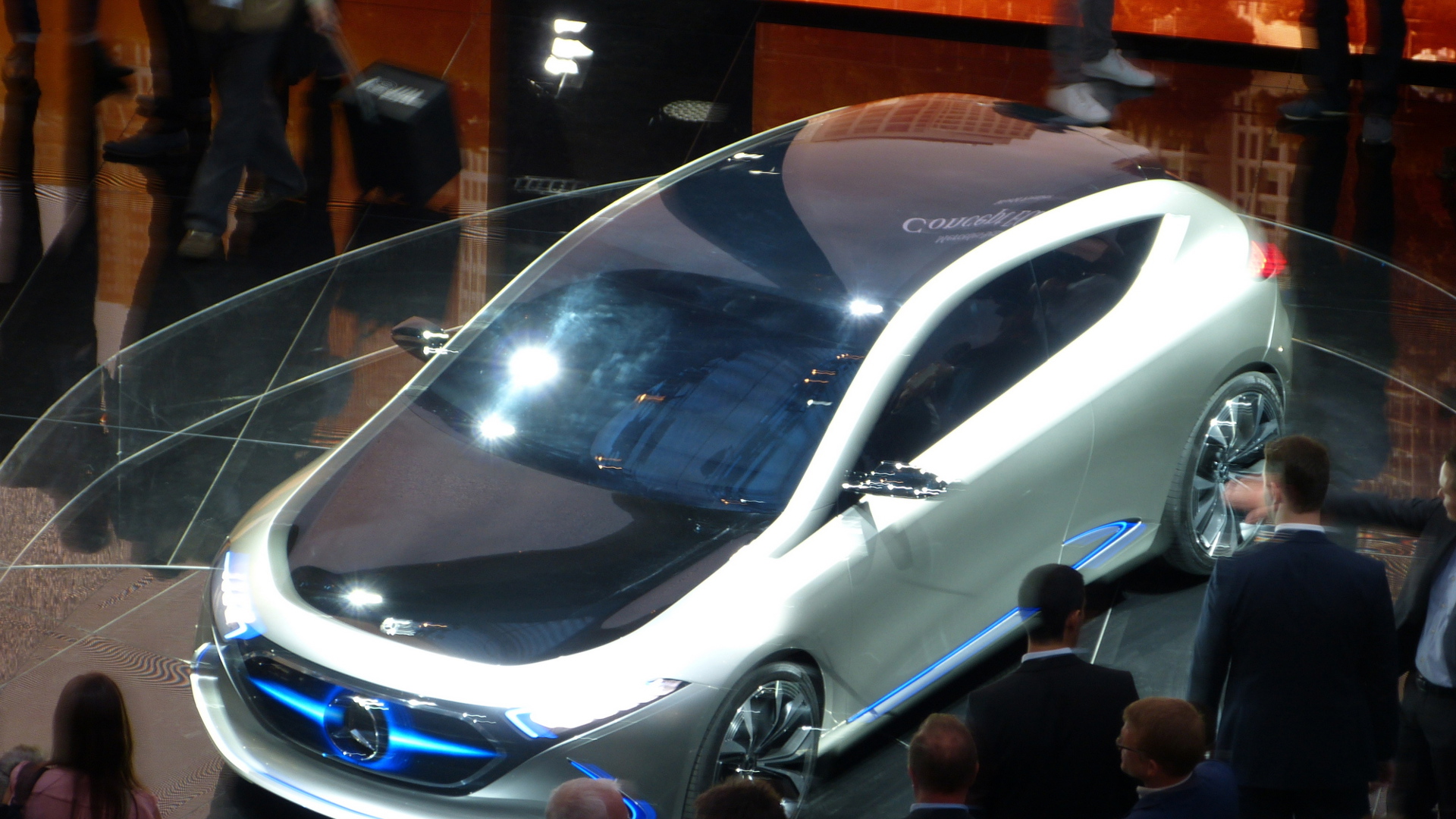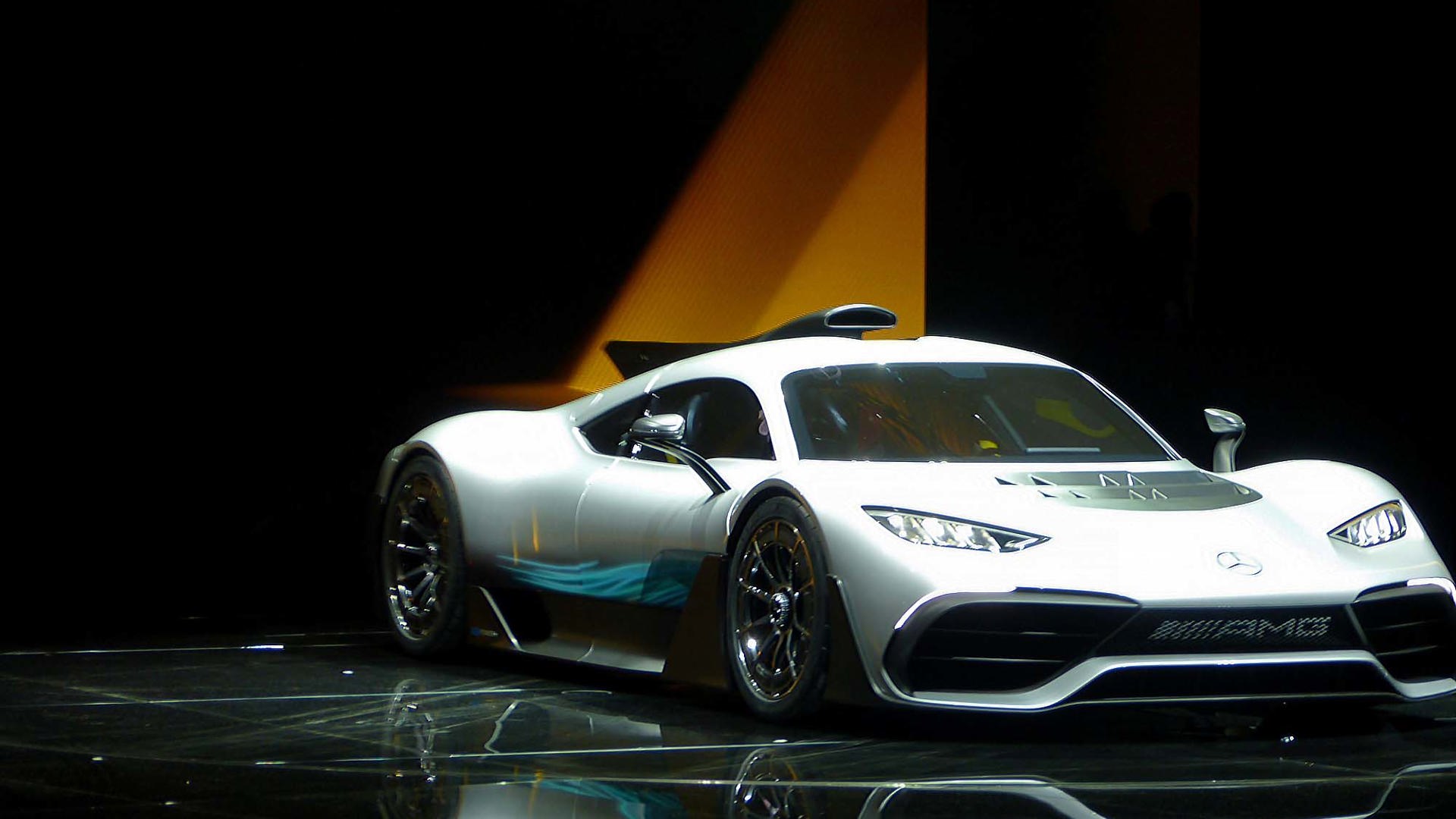Mercedes-Benz brought its full range of futuristic automobile offerings to the Frankfurt International Auto Show on Tuesday, unveiling a new EV concept for the first time, the Smart EQ concept in the flesh, and the Project One hypercar – powered by a 2015 Formula 1 hybrid engine.
Of more immediate relevance to consumers, at least in Europe, Mercedes unveiled its GLC Fuel Cell plug-in hybrid.
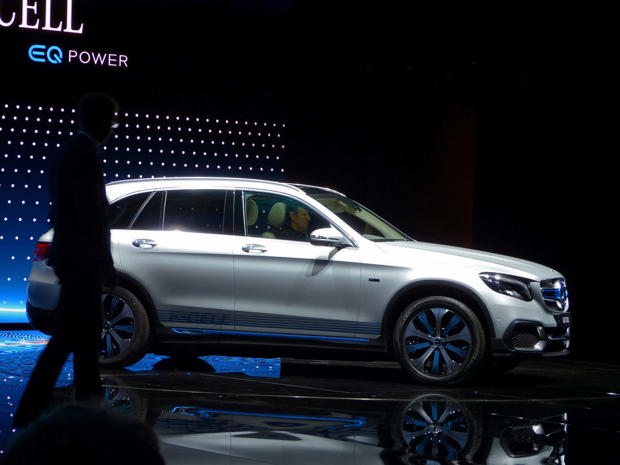
The Mercedes-Benz GLC Fuel Cell vehicle won’t be coming to Canada any time soon, but the zero-emission hydrogen-powered SUV is soon to make its way into European showrooms.
Based on the GLC SUV, the Fuel-Cell plug-in hybrid is part of what Mercedes-Benz calls its “CASE” strategy. CASE stands for Connected, Autonomous, Shared, Electric – representing Mercedes’s four-pronged (should have been three-pointed) approach to protecting the role of the automobile in daily transportation.
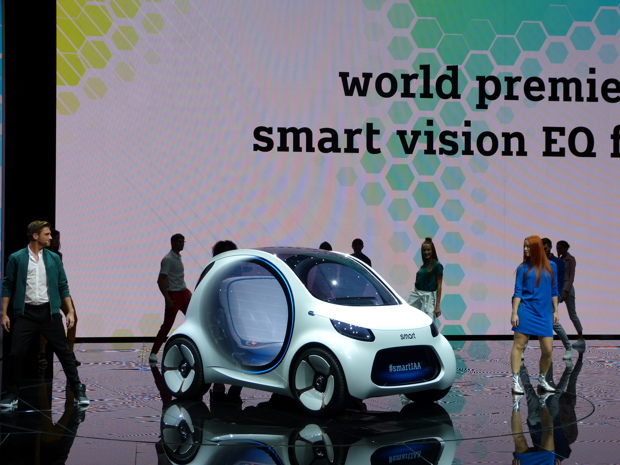
Also unveiled in the flesh was the Smart EQ Fortwo concept vehicle, and the Mercedes-Benz EQA concept vehicle. Smart will be purely EV in Europe and North America by 2020, making it the first ICE brand to be entirely converted to EV.
Smart is focusing on the Connected aspects of autonomous vehicles and ride sharing, visualizing the Smart EQ as a personal device that matches the profiles of potential ride sharers, and even, in some cases, accidentally plays Cupid. The future, it says, includes using big data and personal cloud information to help predict and serve users, suggesting events and locations and connecting riders with like-minded folk.
The EQA, a hot-hatch-themed electric compact had a less flashy introduction than the musical-theatre release of the Smart EQ, but will perhaps be closer to production than its diminutive stablemate.

Two 270 hp and 369 lb-ft of torque come from two modular electric motors. There are three charging options, and a full charge could take as little as 10 minutes.
A virtual grille will change from blue to red and change graphics depending on the drive mode selected, further highlighting the aesthetic benefits of electric-vehicle packaging.
The EQC will be shown in 2018, and will be the first standard production model offered as a pure EV.
And of course, AMG had to get in on the act too, with its Project One Hypercar soon to be available to those willing to spend the money on a 1,000 hp hypercar powered by four electric motors and a turbocharged V6.
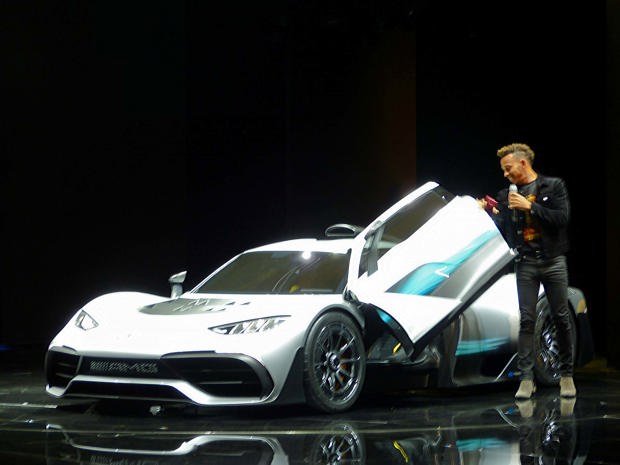
Every Mercedes-Benz product line will have an electrified variant by 2022 – meaning 50 different hybrid/EV options from the German marque.
Mercedes-Benz CEO Dieter Zetsche also doubled down on Mercedes-Benz's commitment to future diesel improvements, taking a swipe at plans by many cities in Europe to ban the engines. While acknowledging the role recent diesel scandals have impacted public and government trust in internal combustion engines in general, Zetsche says that development continues to improves these technologies.
He cited the company’s three-billion Euro investment in cleaner diesel technology and said that technological innovation – not prohibition – is the way to clean up internal combustion engines of all types. And says it’s the only way to assure customers have enough options for their daily transportation going forward.
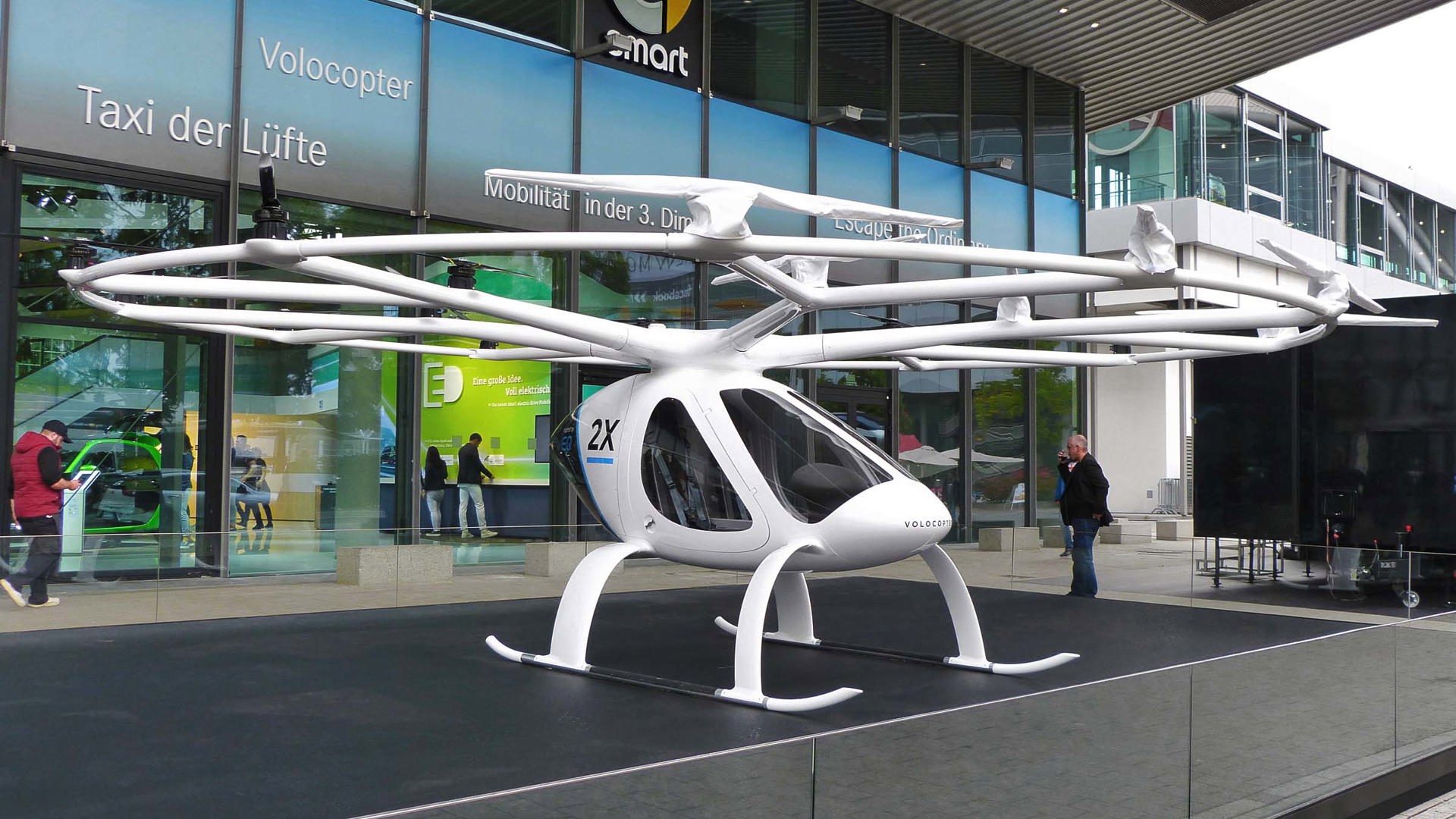
Going up, is also a possibility for the future, and the Mercedes-Benz partnership with Volocopter was also on display, with a working prototype of the autonomous multi-rotor helicopter on display at the Mercedes stand.
Mercedes-Benz therefore predicts that diesels and gasoline powered vehicles will continue to be a valuable element in the full suite of transportation solutions well into the next generation.
This idea, that transport will involve more than just one solution is one we support. Mercedes-Benz seems to think that autonomous driving will happen mostly in the urban centres though, while some (including this writer) feel that autonomous driving will happen mostly on freeways and highways, with humans taking the wheel on city streets, at least for some time to come.
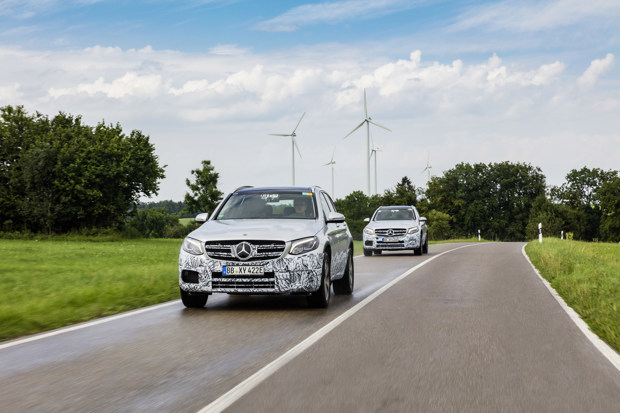
That’s perhaps why Mercedes is investing in extensive urban autonomous testing. The Intelligent World Drive project will begin tomorrow. In it, an S-Class-based autonomous car will test in urban conditions across five countries, to prepare Mercedes-Benz for what it calls “the most extreme autonomous driving conditions” – urban conditions.
Exactly how the future of transport will shake out is very much a moving target, but any which way it goes, we live in a fascinating age of development and transformation.
